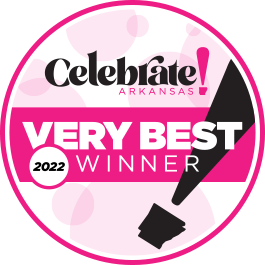Have you ever wondered how some teams seem to be in a position where they are playing for a championship every season? Or, perhaps it’s a work team which delivers great results year after year. It’s not because they always have the best players or spend the most money or even have the same people in place for year after year. While all that would be fantastic, the reality is individuals come and go and spending more doesn’t always deliver success. A major reason those teams are able to consistently deliver strong results is because their leader or coach has done an incredible job in defining and reinforcing their culture.
From my own experience and observations, developing and defining a winning culture starts with answering some basic questions in two important areas.
- People: Who are we and why are we here?
- Expectations: What should others expect from us?

People
It all starts with the “Who” – the people who make up the team. Like many of you, I value the people I work with above most anything else and the relationships we nourish bring life and warmth to an office. With the average person spending more time at work than with their family and friends, it should be worth the sacrifices, right? We all need to feel the time we invest in our work matters and more importantly achieves some level of personal and professional fulfillment. Take time to discuss and identify your team’s collective strengths: What areas do you want to emphasize that are working well? What type of qualities does the team display which makes them unique? What values (personal & corporate) will you promote and reinforce? However you end up defining yourselves, be sure it’s authentic for you and your team.
To help define the culture you want to create, here are a few things for consideration:
- Retain and recruit the right talent: A strong mix of passion, experience and skills to set the tone.
- Place a high value on training and development: Leads to professional growth and a confidence to do more.
- Celebrate and reward success: Promotes pride of a job well done. Also an opportunity to showcase good work that you want to see repeated and/or replicated.
- Continuous feedback: Provides transparency on areas you see as strengths and areas of opportunity.
- Meaningful goals: Drives accountability and a sense of value and accomplishment.
Expectations
You’ve been asked to pull together a high level summary of your business for a meeting tomorrow in the boardroom. It’s on. It’s your time to show them what you’re made of. You focus your energies and create a masterpiece of charts, graphs and insights. Before you enter, you pause to catch your breath and open the door, only to discover the room is full of 3rd graders who are on a field trip to understand more about your company. Wouldn’t clearer expectations have been helpful? You would have probably prepared differently and created something more relevant to the audience.
As the above example illustrates, setting clear expectations are important for team members to understand. It helps them know if their efforts are on target with the outcomes you’ve asked them to deliver. Setting the expectations for your team’s culture can work much in the same way. It’s critical in helping to form your team’s identity, what they will be known for and their brand. A great first step to building a team’s identity is to interview your leaders, partners and customers. Get a solid understanding of what they need and expect from you. Are there things other teams are doing better or areas they’ve been disappointed in or would like to see improved? Are there any good processes already in place which can be reinforced to help further set them apart? From the feedback, identify themes and align with your team on a few key words you all want to be known for and can live into. Bring these words to life in your communications, and if you have an office environment, make them visible for everyone to see. Ultimately these are the words you want others to use to describe your team.
As history shows us, strong leaders and coaches are often the driving force behind the greatest teams. Those leaders have worked hard to shape and define their team’s culture, creating a blue print which delivers repeatable success, starting with “People” and “Expectations”.
Consider these questions: What is your team’s culture? How will you help shape it? What should others expect from your team?
Andy Kaufmann
*Senior Director, Walmart – Edgewell Personal Care

*Title and company of the author reflect their position at the time article was written.
The opinions expressed here by guest bloggers are their own, not necessarily those of Stout Executive Search.





